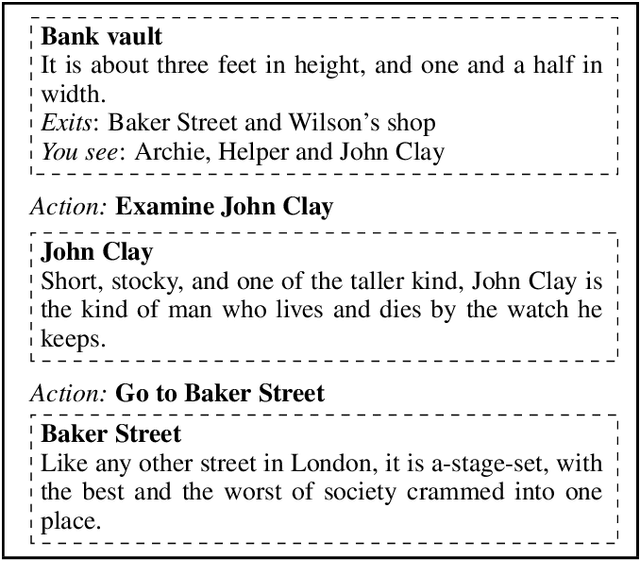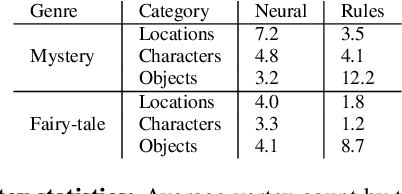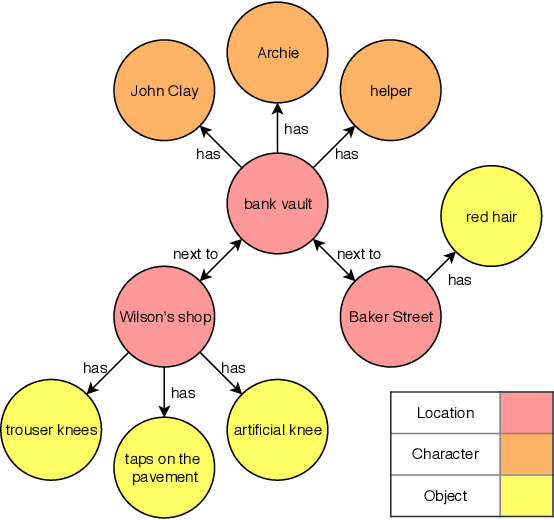William Broniec
Automated Storytelling via Causal, Commonsense Plot Ordering
Sep 02, 2020



Abstract:Automated story plot generation is the task of generating a coherent sequence of plot events. Causal relations between plot events are believed to increase the perception of story and plot coherence. In this work, we introduce the concept of soft causal relations as causal relations inferred from commonsense reasoning. We demonstrate C2PO, an approach to narrative generation that operationalizes this concept through Causal, Commonsense Plot Ordering. Using human-participant protocols, we evaluate our system against baseline systems with different commonsense reasoning reasoning and inductive biases to determine the role of soft causal relations in perceived story quality. Through these studies we also probe the interplay of how changes in commonsense norms across storytelling genres affect perceptions of story quality.
Bringing Stories Alive: Generating Interactive Fiction Worlds
Jan 28, 2020



Abstract:World building forms the foundation of any task that requires narrative intelligence. In this work, we focus on procedurally generating interactive fiction worlds---text-based worlds that players "see" and "talk to" using natural language. Generating these worlds requires referencing everyday and thematic commonsense priors in addition to being semantically consistent, interesting, and coherent throughout. Using existing story plots as inspiration, we present a method that first extracts a partial knowledge graph encoding basic information regarding world structure such as locations and objects. This knowledge graph is then automatically completed utilizing thematic knowledge and used to guide a neural language generation model that fleshes out the rest of the world. We perform human participant-based evaluations, testing our neural model's ability to extract and fill-in a knowledge graph and to generate language conditioned on it against rule-based and human-made baselines. Our code is available at https://github.com/rajammanabrolu/WorldGeneration.
Toward Automated Quest Generation in Text-Adventure Games
Sep 13, 2019



Abstract:Interactive fictions, or text-adventures, are games in which a player interacts with a world entirely through textual descriptions and text actions. Text-adventure games are typically structured as puzzles or quests wherein the player must execute certain actions in a certain order to succeed. In this paper, we consider the problem of procedurally generating a quest, defined as a series of actions required to progress towards a goal, in a text-adventure game. Quest generation in text environments is challenging because they must be semantically coherent. We present and evaluate two quest generation techniques: (1) a Markov chains, and (2) a neural generative model. We specifically look at generating quests about cooking and train our models on recipe data. We evaluate our techniques with human participant studies looking at perceived creativity and coherence.
 Add to Chrome
Add to Chrome Add to Firefox
Add to Firefox Add to Edge
Add to Edge